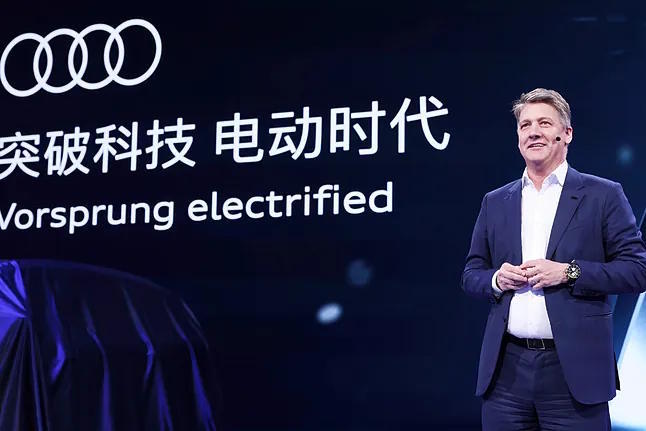In a one-hour meeting with four international journalists, including the representative from EL MUNDO, Audi's CEO Gernot Döllner opened the door for Chinese car manufacturers to take advantage of plant closures in Europe to produce their vehicles here and thus avoid tariffs. "We are supporters of the free market and, just as we have business in China, it would be an option for the possible factories we close in Europe to be used by our partners from that country."
The protectionist policies being applied by the EU in the automotive sector in response to the massive influx of Chinese manufacturers, who are ahead in electric models that European leaders want to promote, are causing many of these Asian companies to consider local manufacturing to avoid high tariffs.
On the other hand, the medium-term forecasts are not good for the European automotive industry. In Germany alone, the VDA employers' association estimates a loss of 190,000 jobs in the next 10 years. In fact, the VW Group has reached an agreement to "socially responsibly" eliminate 35,000 jobs by 2030.
Döllner's words were later confirmed, after this interview, by the CEO of the German consortium, Oliver Blume. He acknowledged contacts with their Chinese partners, to whom they could transfer up to two factories in Germany, those in Osnabrück and Dresden. This move would maintain employment in those factories and be much cheaper than closing them. Another option would be to replicate the model used in China and manage those plants through a joint venture with one of their associated companies there: SAIC, FAW, and JAC.
Either of these two alternatives would be a short-term solution, although it will not solve the underlying problem. Vehicle sales in Europe have not recovered to pre-pandemic levels, due to consumer uncertainty regarding electric cars and government restrictions on the use of other technologies by Ursula Von der Leyen's administration.
For this reason, Audi, like many other brands, has slowed down its rushed transition to electric mobility, although they do not officially acknowledge it.
Following the appointment of Geoffrey Bouquot as technical development director, they are once again focusing on flexibility in propulsion systems until 2035, the year when, if deadlines are not met, the sale of new combustion vehicles will be banned in the EU. "We have a global vision and, as demands are not the same in all regions, we will focus our efforts on three pillars: thermal engines with mild hybridization, plug-in hybrids, and fully electric models," Döllner commented.
This means stepping back from plans that stated Audi would be one of the first brands to transition to 100% electric by 2026.
The arrival of Donald Trump to the US presidency is another reason for this technological diversity. "Along with Europe and China, North America is the third strategic market for us, and the range of different propulsion options now benefits us in achieving success in that region," explained Audi's CEO. It is worth noting that, upon taking office, Trump withdrew his country from the Paris Agreement on climate change and immediately expressed his intention to eliminate electric car subsidies.
In the final part of the conversation, Döllner expressed opposition to the use of synthetic fuels, known as e-fuels, in new cars, which does not align with the strategy of the VW Group's president, Blume, who has approved significant investments in their development, with Porsche heavily involved, the brand that actually owns the German conglomerate.
"It is an interesting technology for classic models and for other sectors such as aviation or maritime, but not for use in current cars. The electric vehicle is the most efficient solution to address the real environmental problem, which requires us to rethink our foundations. The transformation of Audi towards this technology is a fact," he concluded.
